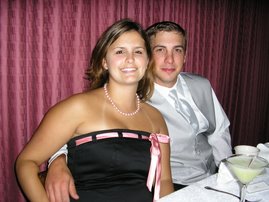
By: Judy Blume
This story is hilarious (from an adult's point of view!) I read this book as a preteen and couldn't remember what exactly the story was about. All I remember is that I absolutely loved it. The story is about a girl, Margaret, who seems to be struggling with common preteen issues-puberty, friends, awkwardness, boys, moving, parents. I can see why many preteen girls could relate to this story. Whenever I read about something I was personally going through, it made me feel good to know I was not alone. Even if I was reading a fiction story and the characters were not real, I felt like I could relate and it made me not to feel so self-conscious and awkward.
I can totally see why Judy Blume is viewed as pushing the limits. She talks about issues like menstruating and what it feels like and stuffing bras. Though I don't feel these things are over-the-top, some parents may and it's completely okay for them to not want their kids to read about these issues. Many parents like to expose and discuss topics like these with their children themselves.
In Judy Blume's defense, even if she is writing about periods and bras, she writes in a way so young girls can feel okay about what's happening to their bodies. I remember this as being the most awkward time in my life and it helped me emotionally to read these stories where I could laugh and feel okay.
This book was not written as a comedy, per se, though there are funny parts. As an adult, it is so funny to take a walk down memory lane and relive having secret club meetings with your girlfriends and trying on bras for the first time. Ugh, maybe I'm getting too personal. I was reading this book and thought, wow, this is so me and my friends in middle school when we thought we were so cool and knew it all! See how relateable the text is!

















